
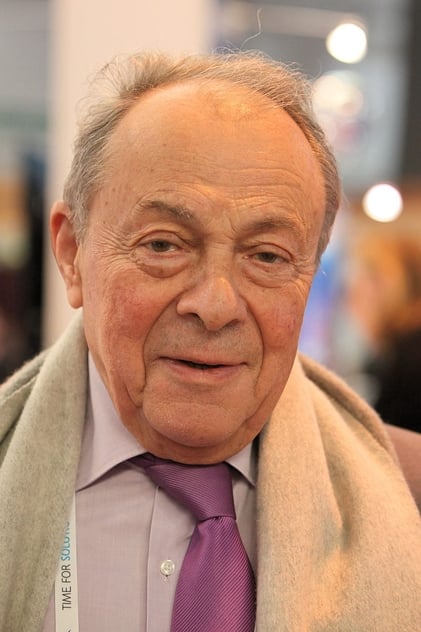
Michel Rocard
Born: August 23, 1930
Died: July 2, 2016
in Courbevoie, Seine [now Hauts-de-Seine], France
Died: July 2, 2016
in Courbevoie, Seine [now Hauts-de-Seine], France
Michel Rocard (23 August 1930 – 2 July 2016) was a French politician and a member of the Socialist Party (PS). He served as Prime Minister under François Mitterrand from 1988 to 1991 during which he created the Revenu minimum d'insertion (RMI), a social minimum welfare program for indigents, and achieved the Matignon Accords regarding the status of New Caledonia. He was a member of the European Parliament, and was strongly involved in European policies until 2009. In 2007, he joined a Commission under the authority of Nicolas Sarkozy's Minister of Education, Xavier Darcos.
Rocard was born in Courbevoie, Hauts-de-Seine, to a Protestant family. The son of nuclear physicist Yves Rocard, he entered politics as a student leader while he was studying at Sciences Po. He became chair of the French Socialist Students affiliated to the main French Socialist party at the time, the French Section of the Workers' International (SFIO), and studied at the École nationale d'administration (ENA), after which he chose to enter the prestigious Inspection des finances. As an anti-colonialist, he went to Algeria and wrote a report regarding the widely-ignored refugee camps of the Algerian War (1954–1962). The report was leaked to the newspapers Le Monde and France Observateur in April 1959, which almost cost Rocard his position. Michel Rocard was a certified glider pilot.
Having left the SFIO because of Guy Mollet's position towards the Algerian War, Rocard led the dissident Unified Socialist Party (PSU) from 1967 to 1974. He was a prominent figure during the May 1968 crisis, supporting the auto-gestionary project. He ran in the 1969 presidential election but obtained only 3.6% of the vote. Some months later, he was elected deputy for the Yvelines département, defeating the former Prime minister Maurice Couve de Murville. He lost his parliamentary seat in 1973, but retook it in 1978.
In 1973–74, he participated in the LIP conflict, selling watches with the workers and participating, behind the scenes, in the attempts to find an employer who would take back the factory, which was on the verge of being liquidated.
In 1974, he joined François Mitterrand and the renewed Socialist Party (PS), which had replaced the old SFIO. Most of the PSU members and a part of the French and Democratic Confederation of Labour (CFDT) trade union – the non-Marxist section of the left that Rocard famously defined as the "Second Left" – followed him.
Elected mayor of Conflans-Sainte-Honorine in 1977, he led the opposition to Mitterrand inside the Socialist Party (as a candidate of the right wing of the party). After the defeat of the left at the 1978 legislative election, he tried to take over the leadership of the party. In spite of his alliance with Pierre Mauroy, the number 2 of the PS, he lost at the Metz Congress (1979). As the Socialist Party's most popular politician at the time (including Mitterrand himself), he announced that he would run for president; but his "Call of Conflans" did not result in majority support within the PS, and he withdrew his candidacy. Mitterrand was the successful Socialist candidate in the 1981 presidential election. ...
Source: Article "Michel Rocard" from Wikipedia in English, licensed under CC-BY-SA 3.0.
Rocard was born in Courbevoie, Hauts-de-Seine, to a Protestant family. The son of nuclear physicist Yves Rocard, he entered politics as a student leader while he was studying at Sciences Po. He became chair of the French Socialist Students affiliated to the main French Socialist party at the time, the French Section of the Workers' International (SFIO), and studied at the École nationale d'administration (ENA), after which he chose to enter the prestigious Inspection des finances. As an anti-colonialist, he went to Algeria and wrote a report regarding the widely-ignored refugee camps of the Algerian War (1954–1962). The report was leaked to the newspapers Le Monde and France Observateur in April 1959, which almost cost Rocard his position. Michel Rocard was a certified glider pilot.
Having left the SFIO because of Guy Mollet's position towards the Algerian War, Rocard led the dissident Unified Socialist Party (PSU) from 1967 to 1974. He was a prominent figure during the May 1968 crisis, supporting the auto-gestionary project. He ran in the 1969 presidential election but obtained only 3.6% of the vote. Some months later, he was elected deputy for the Yvelines département, defeating the former Prime minister Maurice Couve de Murville. He lost his parliamentary seat in 1973, but retook it in 1978.
In 1973–74, he participated in the LIP conflict, selling watches with the workers and participating, behind the scenes, in the attempts to find an employer who would take back the factory, which was on the verge of being liquidated.
In 1974, he joined François Mitterrand and the renewed Socialist Party (PS), which had replaced the old SFIO. Most of the PSU members and a part of the French and Democratic Confederation of Labour (CFDT) trade union – the non-Marxist section of the left that Rocard famously defined as the "Second Left" – followed him.
Elected mayor of Conflans-Sainte-Honorine in 1977, he led the opposition to Mitterrand inside the Socialist Party (as a candidate of the right wing of the party). After the defeat of the left at the 1978 legislative election, he tried to take over the leadership of the party. In spite of his alliance with Pierre Mauroy, the number 2 of the PS, he lost at the Metz Congress (1979). As the Socialist Party's most popular politician at the time (including Mitterrand himself), he announced that he would run for president; but his "Call of Conflans" did not result in majority support within the PS, and he withdrew his candidacy. Mitterrand was the successful Socialist candidate in the 1981 presidential election. ...
Source: Article "Michel Rocard" from Wikipedia in English, licensed under CC-BY-SA 3.0.
Movies for Michel Rocard...

Title: De Charles de Gaulle à Emmanuel Macron, les gardiens de l'empire
Character: Self - Prime minister (archive footage)
Released: March 9, 2022
Type: Movie

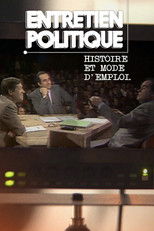
Title: Entretien politique : Histoire et mode d'emploi
Character: Self (archive footage)
Released: July 13, 2020
Type: Movie

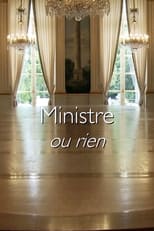
Title: Ministre ou rien
Character: Self
Released: June 25, 2014
Type: Movie
This is the unlikely story of 21 ministers and prime ministers who have crossed or are crossing the french Fifth Republic today. Twenty-one politicians who, from one day to the next, find themselves at the head of a ministry by the grace of a President of the Republic and his Prime Minister. The formation of the government, conflicts of attribution, reshuffles, rumours of appointments, evictions, casting errors: it is all the capricious backstage of the games of power examined here under the angle of confidence and which sheds light on the prestigious but unknown function of minister. An original and instructive political saga on the reality of those who hold or have held this prestigious position.

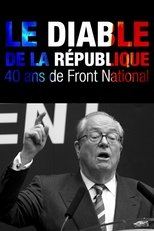
Title: Le Diable de la République : 40 ans de Front national
Character: Self
Released: November 30, 2011
Type: Movie

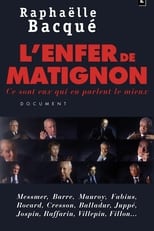
Title: L’enfer de Matignon
Character: Self
Released: October 23, 2008
Type: Movie
In a series of long interviews, 12 prime ministers talk about their experience in the upper echelons of power. The function of prime minister, torn between the president and the parliament, appointed without necessarily being elected but responsible for everything, is at the center of debate. With the exception of Jacques Chirac (1974-1976 and 1986-1988), deliberately left out because of his image as French President, those who governed France for the past 35 years agreed to discuss the exercise of power, as seen through archive footage, but also how they experienced it personally. Filmed in the same studio and sitting in the same chair, 12 French prime ministers talk freely about their time in office, from their appointment until their resignation.





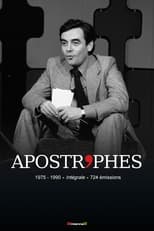
Title: Apostrophes
Character: Self
Released: January 10, 1975
Type: TV
Apostrophes was a live, weekly, literary, prime-time, talk show on French television created and hosted by Bernard Pivot. It ran for fifteen years (724 episodes) from January 10, 1975, to June 22, 1990, and was one of the most watched shows on French television (around 6 million regular viewers). It was broadcast on Friday nights on the channel France 2 (which was called "Antenne 2" from 1975 to 1992). The hourlong show was devoted to books, authors and literature. The format varied between one-on-one interviews with a single author and open discussions between four or five authors.
